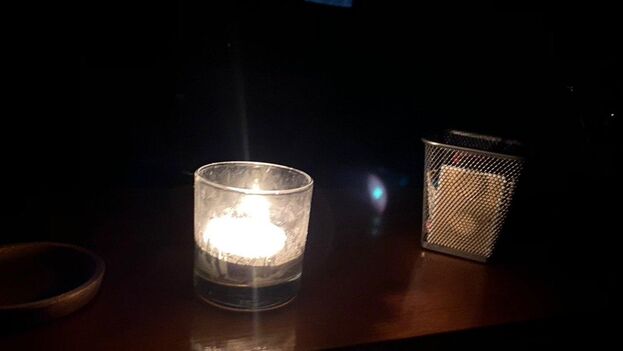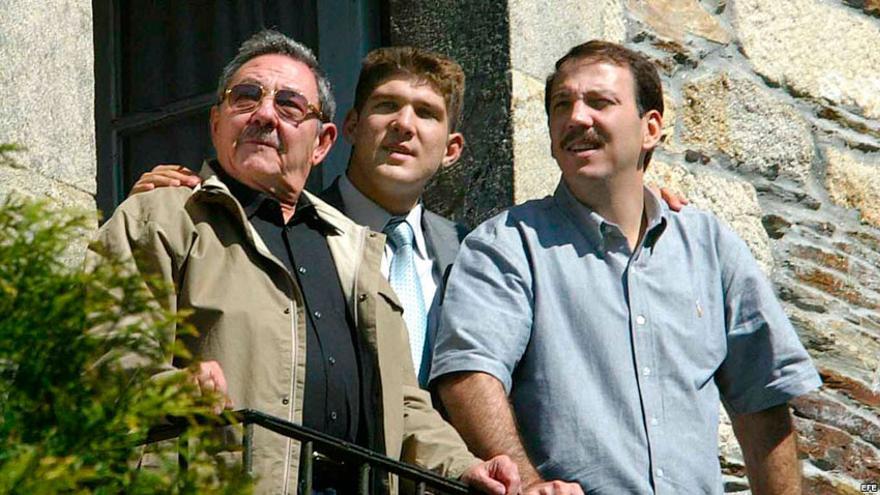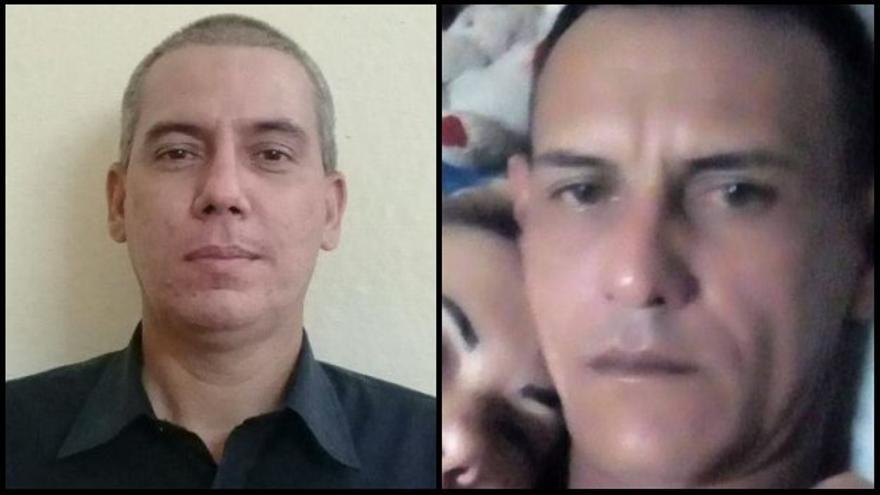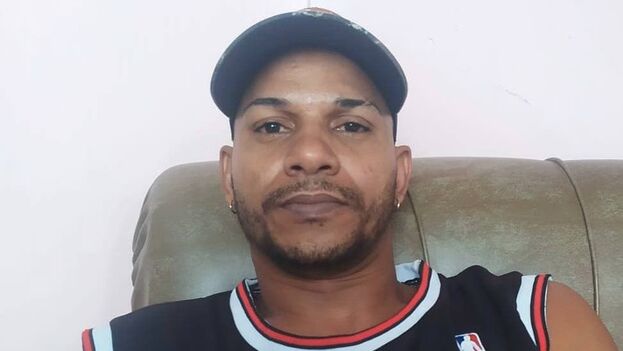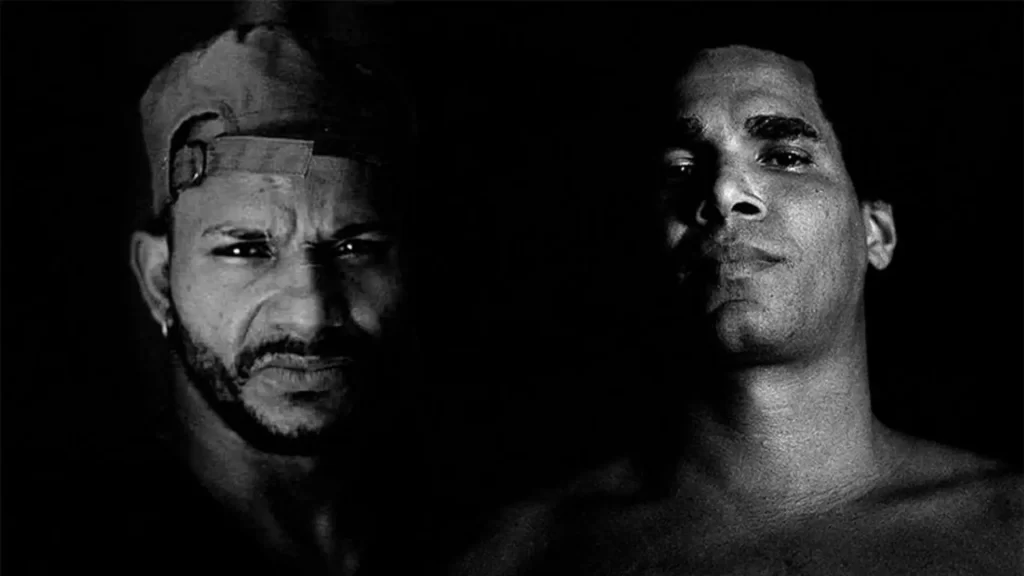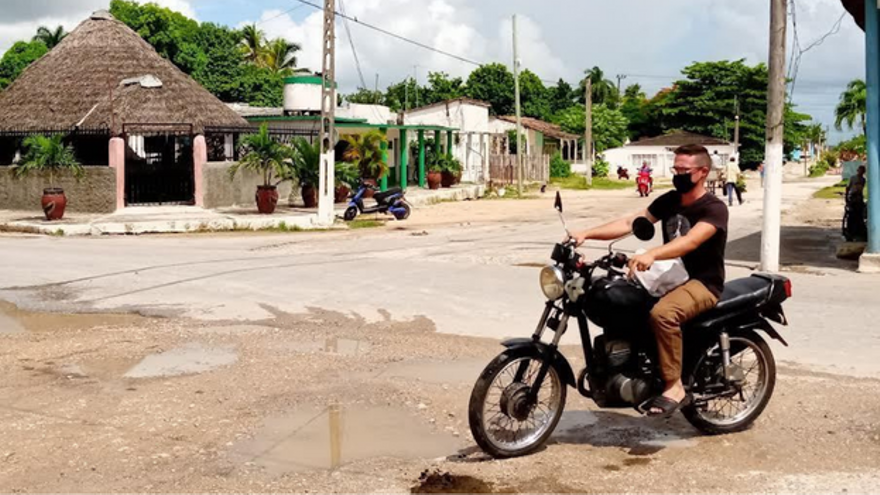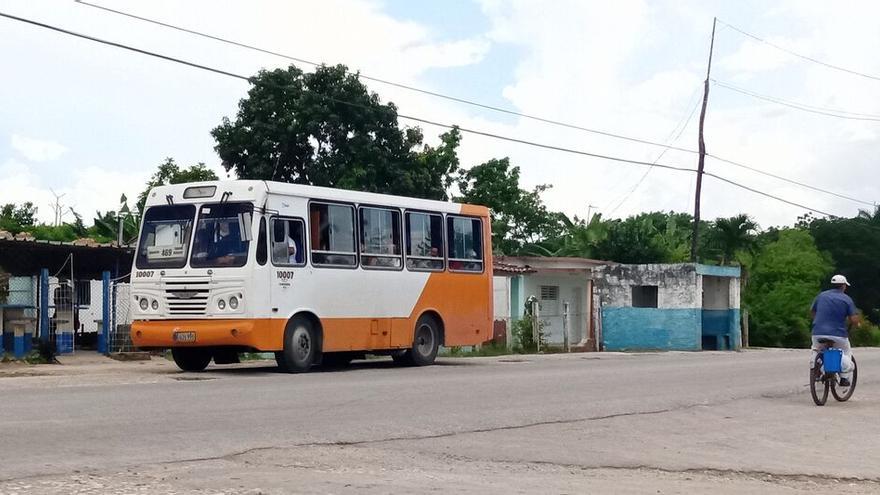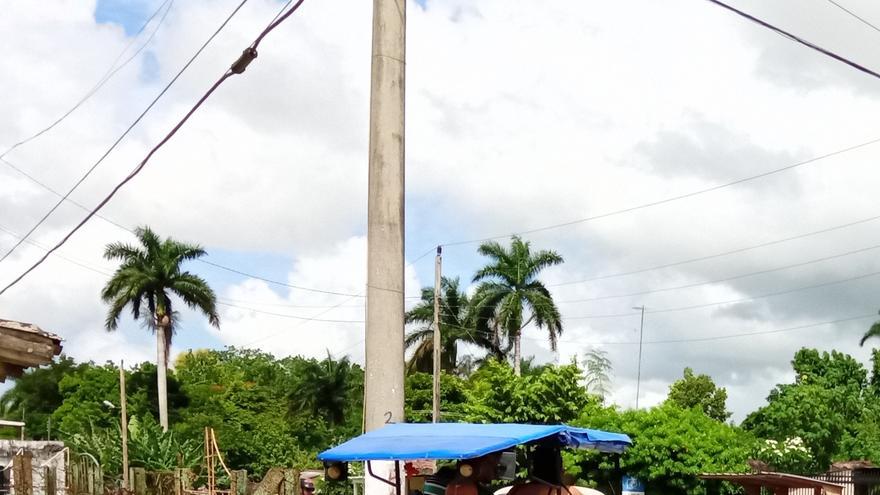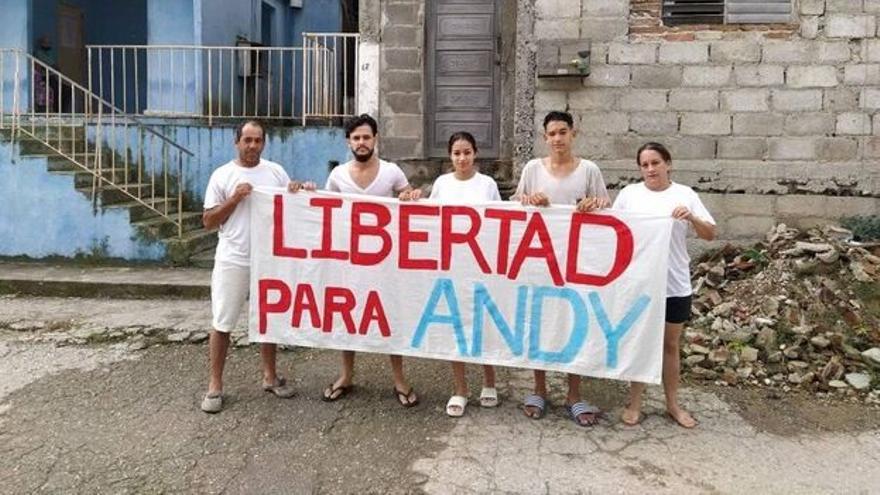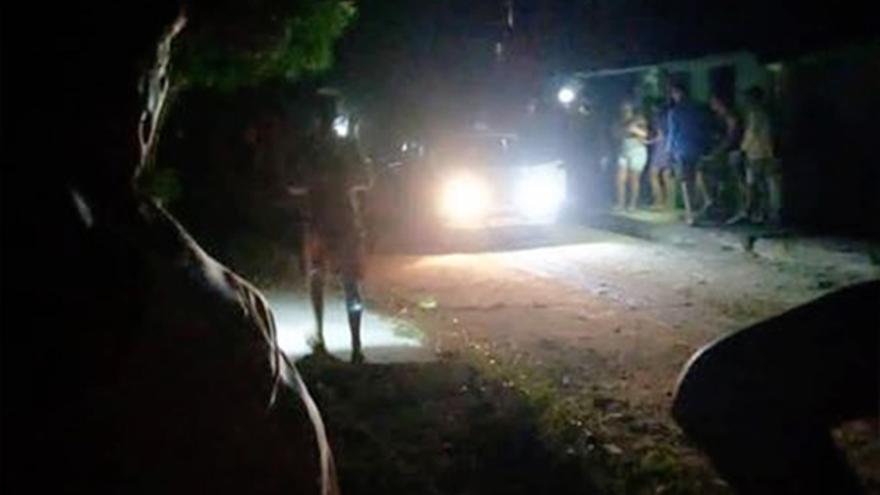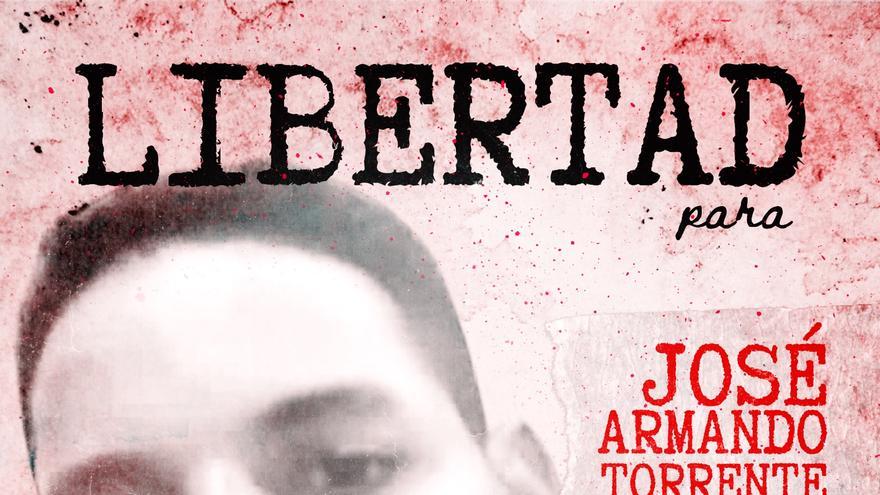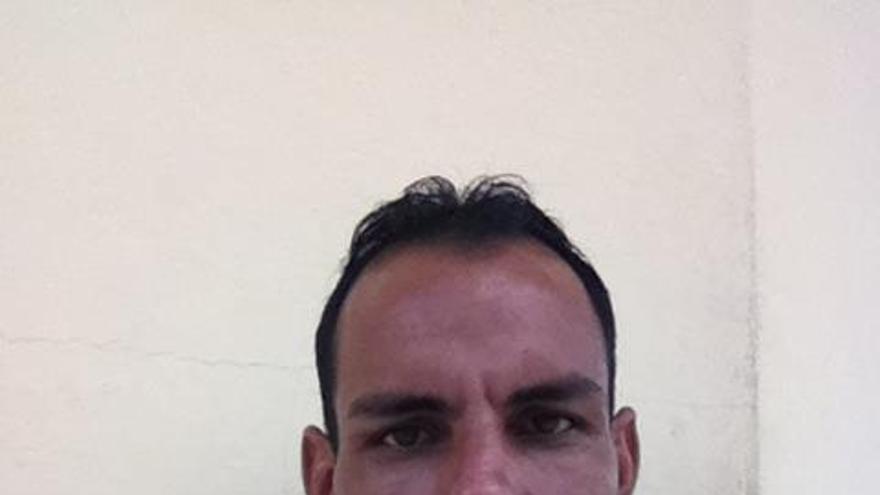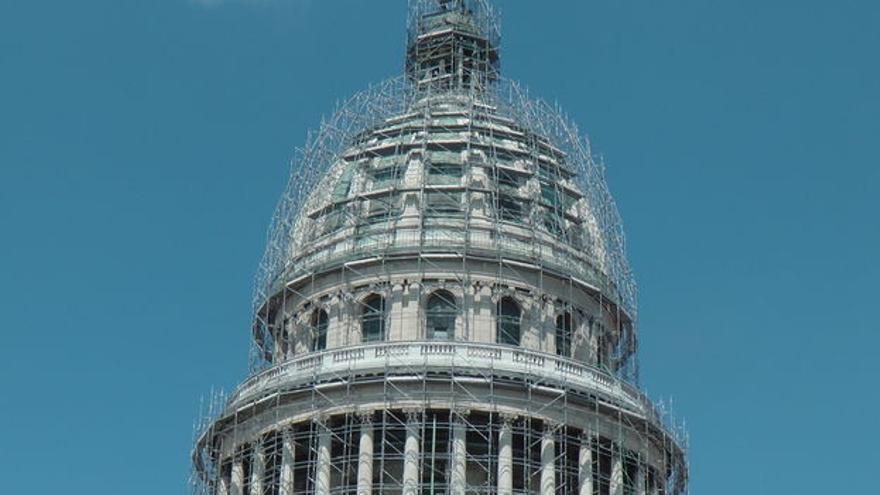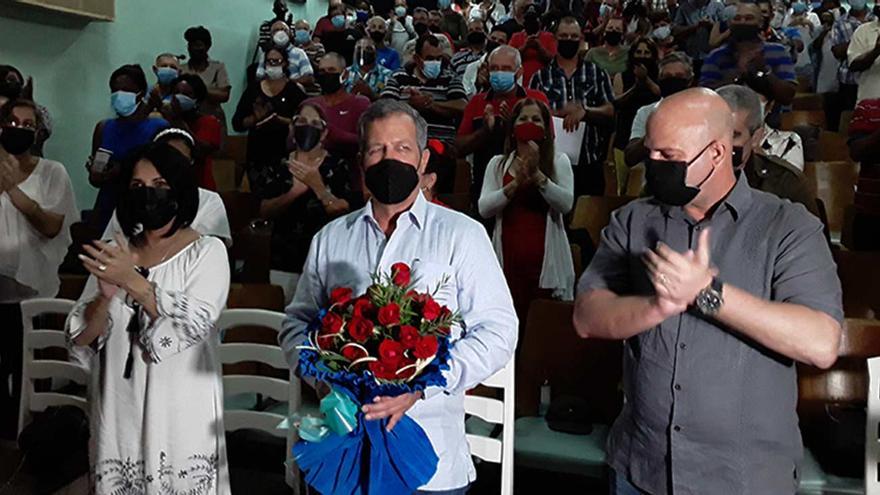During his trip to two power plants — the Máximo Gómez plant in Mariel and the Ernesto Guevara plant in Serna, Santa Cruz del Norte — the communist ruler provided details of the strategy to overcome the national electricity system’s situation which has resulted in continuous blackouts over several months. But also, according to some, he’s freaking out. What is happening to Díaz-Canel?
Who would have predicted it? Once again the embargo or blockade appears as the justification for all the maladies that accumulate on Díaz-Canel’s agenda. That is, Cuba’s communist ruler, after acknowledging that the energy crisis has nothing to do “with enemy activity, nor with any bad behavior of the thermo-electric plant employees” he launched harsh attacks against the United States, faulting the blockade [i.e. the US embargo] for “the systematic effects it has provoked, which left the country without possible financing to carry out the maintenance work, repairs and the new investments needed in that sector.” Up until this point, nothing new.
Once again, taking the Doberman out for a walk. Maybe one of the state newspaper Granma’s journalists should have reminded Díaz-Canel of the Soviet-communist origins of the power plants that are still in operation, with several issues of obsolescence. No. Putin, Díaz-Canel’s principle associate, certainly would not like to receive this type of critique of his technology. continue reading
Without taking responsibility for a single one of the events, Díaz-Canel found a new argument, blaming some “presumed enemies of the revolution” for the whole situation, which is being taken advantage of to “create discouragement, uncertainty, to call for vandalism, to promote disorder. Sadly there are people who, with vandalism, indecent behaviors, lend themselves to these activities.” Inconceivable. What is the communist ruler acknowledging publicly?
Not content, he added that this type of behavior should be separated from “the doubt that the population may have at a certain point, of its demands or of the concerns that are channeled through the [communist] party’s system of services, the government, and the revolution’s institutions.” In fact, he did not realize, or he does not want to realize that it is the same, and he is running out of credit. On this, even Silvio Rodríguez agrees with this blog, which is not usually the case.
In addition, Díaz-Canel should understand that when faced with the dissatisfaction that exists, no party line will suffice, it’s simple, get the electricity to work. Problems are not fixed by covering them up, but rather by resolving them.
When Díaz-Canel wastes Cubans’ time by talking about “the hypocritical, double standard, genocidal, inhumane policies to which they subject the country through unjust sanctions and an intensified blockade” he only wastes energy on an argument which not even he still believes. And all he has to do is resolve, as quickly as possible, a problem which cannot last days, nor weeks, nor months because it could all blow up. When he least expects it.
To simplify Cuba’s communist leader’s statement during his trip to the two power plants in Mariel and Santa Cruz del Norte, “today we have a process of accumulated technological deterioration which cannot be resolved in short order.” And how did we arrive at this situation?
The whole situation corresponds to the communist state-run media’s new propaganda campaign which insists, once again, to a people tired of so many promises and lies, that ” Cuba will overcome the current energy crisis created by the effects over several years of the United States blockade.” Then it remains calm because, with that, it intends to buy time and return to the essence of the revolution, which they have not moved away from in 63 years. Meanwhile, Cubans are fleeing the island in one of the largest exoduses of the last 20 years. [Translator’s note: In fact, ’largest ever’.]
Díaz-Canel observed during his trip to the power plants “intense work, under very difficult conditions, over many hours and with enourmous determination on the part of the power plant employees to recover the power generation capacity as soon as possible and of course, provide more stability, and get us away from these very complex and unpleasant situations which affect our entire population.”
None of that can be criticized, far from it, but did he really expect anything else to happen? Díaz-Canel knows and the plant employees also know that this energy crisis will not be resolved overnight and that its effects will continue, unless a 180 degree turn changes everything.
Díaz-Canel recalled his television appearance in June, during which he said there would be a strategy to eliminate the blackouts by summer, and which Granma described as “a well conceived design.” However, it is evident they must have been talking of another country because this summer, which is not yet over, has been one of alumbrones* more than blackouts and the entire country has been affected by the lack of electricity.
Clearly, it is due to the “accident in the Felton 2 boiler, when the bearing at Felton 1 broke and due to the instability with which CTE Antonio Guiteras, in Matanzas, functions and we have not been able to maintain it to the degree necessary.” Events which they try to present as accidental but which have a peculiar background which should, in any case, be the subject of further investigation.
Somehow, it seems Díaz Canel is crying out for that investigation commission to establish where the responsibility lies when he declared that “for the country’s electrical energy system to function in a stable manner, it is necessary for the hard core where it is generated, which are the Felton and Guiteras plants, to be functioning at full capacity.” If this is known, then what game is he playing?
None. Selling smoke which will dissipate just like the Matanzas fire. Trying to convince Cubans fed up with the situation, that the umpteenth update to the strategy aimed at getting away from the blackouts in the shortest time possible “before the end of the year,” to develop, in 2023, an investment and maintenance group that will stabilize the system and change the energy matrix. And Cubans look at each other knowing that this blah blah blah is more of the same and the way things are going, the problems will continue.
They will continue because the electricity crisis is not resolved with strategies, but with actions. With money, which instead of being dedicated to the hotel industry, should be directed at the capital development of the economy in proportion to the GDP. If this basic infrastructure development indicator, which in Cuba barely reaches 15% compared with 25% in Latin America, there is nothing to do. It is an issue of money and profitability that cannot be repaired with a patch of a few replacement parts. Electricity is either managed profitably or it goes under. Like the rest of the sectors of the Cuban economy.
Financing, once inaccessible, now seems to come mostly to recover unforeseen thermal and distributed generating capacity; in a group of new technologies for generation. The same question then arises, why wasn’t that financing available earlier, and most importantly, from where does it come? Beware of indebtedness, these aren’t the best times for risk-taking ventures.
Díaz Canel neither takes responsibilities for this electricity disaster, nor those of his predecessors, the Castro brothers, who really did very little in all of this. One of communism’s great failures in Cuba has been forecasting, and therefore, the current situation of instability of and decline in electricity supply has not been an isolated event, but rather has been a long time coming. What happens is that when these unforeseen events arise, there is no other option but to see that the social communist system of organization does not have the capacity to confront them.
The response is to continuously follow up on the maintenance and repairs, “to prove how the capacities are being incorporated, how the rest of the system behaves, and which electricity generation results have been achieved.” That is, more of the same as always: bureaucracy and hierarchy, hopefully it will not occur to them to create an OSDE [Organization of Direct Business Services} for all of this. That would be the limit.
What was said does not have a response and now the attacks come from all directions. It’s bad.
*Translator’s note: “Alumbrones” is a word coined in Cuba in the 1990s during the so-called Special Period, to refer to the unexpected moments when the lights came ON, versus the long periods without electricity.
Translated by: Silvia Suárez
____________
COLLABORATE WITH OUR WORK: The 14ymedio team is committed to practicing serious journalism that reflects Cuba’s reality in all its depth. Thank you for joining us on this long journey. We invite you to continue supporting us by becoming a member of 14ymedio now. Together we can continue transforming journalism in Cuba.
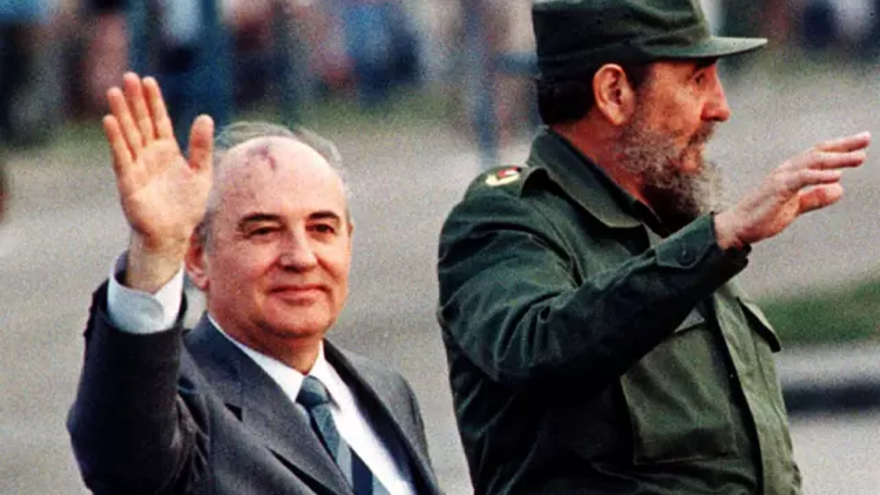
![]() 14ymedio, Frank Calzón, Miami, 3 September 2022 — Mikhail Gorbachev, the Soviet leader who wanted to salvage communism with his reforms and openings known as glasnost and perestroika, could not convince Fidel of the pragmatism of these reforms during his visit to Cuba in 1989. Fidel did not like the interest generated by the Russian — younger than he — among Havanans, nor did he like his ideas of renewal.
14ymedio, Frank Calzón, Miami, 3 September 2022 — Mikhail Gorbachev, the Soviet leader who wanted to salvage communism with his reforms and openings known as glasnost and perestroika, could not convince Fidel of the pragmatism of these reforms during his visit to Cuba in 1989. Fidel did not like the interest generated by the Russian — younger than he — among Havanans, nor did he like his ideas of renewal.
